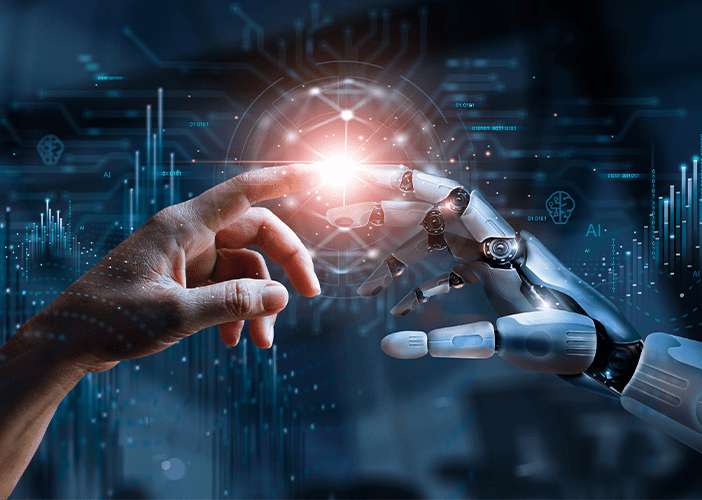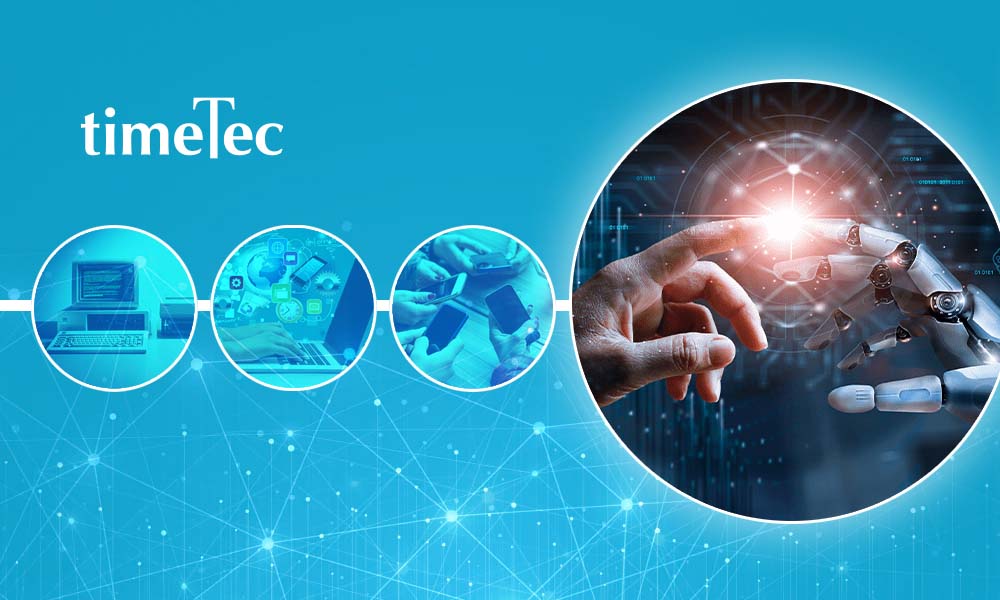Yesterday was our company’s biannual Townhall. As usual, I didn’t present the operational figures. Instead, I used my half-hour slot to step back from day-to-day matters and help the team look at the bigger picture, which is rends and the future.
This time, my topic was AI. I’ve spoken on this subject before, but this is my second take: with a sharper focus and a deeper message.
My presentation had only five slides. Each slide contained just a few words, but they summed up the essence of four major waves in IT history. The fifth slide outlined our company’s strategic response to the current wave of AI transformation.
We often say that technology evolves rapidly. And indeed, new innovations seem to emerge every year or two. But when we take a step back and examine the past 40 years, I believe only four waves have truly brought about seismic, structural change to society:

Wave 1: The PC Era (Mid-1980s)
- Key Feature: Primarily B2B. Software tools entered the business world and boosted operational and production efficiency across industries.
- Impact: IT became a helpful assistant to businesses, driving the efficiency revolution.
Wave 2: The Internet Era (Mid-1990s)
- Key Feature: B2B and B2C. The virtual world emerged, information exploded, and the internet began to reshape traditional industries.
- Impact: IT was no longer just an assistant—it became a disruptor.


Wave 3: The Smartphone Era (Since 2007)
- Key Feature: B2B and B2C deeply integrated. Digital transformation accelerated. With computing power in our hands and data flowing freely, new industries emerged, and daily life changed.
- Impact: IT became not just a friend, but a formidable rival to traditional sectors.
Wave 4: The AI Era (Starting 2023)
- Key Feature: B2B, B2C, and now B2G (integration with government smart city platforms). The age of AI agents is still in its infancy, but what lies ahead resembles what we’ve seen in science fiction.
- Impact: AI is not just changing industries, it may soon redefine the human role itself.

At this point, I asked a question: Did anyone notice a pattern across these waves?
With each wave, the demand for IT professionals grew. But just before the explosion of the fourth wave, AI, the opposite happened. Massive layoffs swept through major tech companies around the world. And the first jobs to go? IT jobs.
In just the first half of 2024, over 500,000 tech workers have been laid off globally.
Unlike previous revolutions that disrupted other industries, this AI revolution began by disrupting its own creators. High-level AI engineers are using generative AI to replace junior developers. And soon, as AI gains the ability to train and upgrade itself, even AI engineers may become obsolete.
This isn’t fear-mongering—it’s already happening.
So the question is: What should we do? Are we ready?
My final slide addressed exactly that: the strategies and changes our company is implementing in response to this AI revolution. As this touches on core business strategy and trade secrets, I won’t elaborate here.
| But one thing is certain: We’re not spectators. We’re movers. The AI wave isn’t a bubble, it’s a tsunami. This blog post was contributed by Mr. Teh Hon Seng, CEO of TimeTec Group. |
